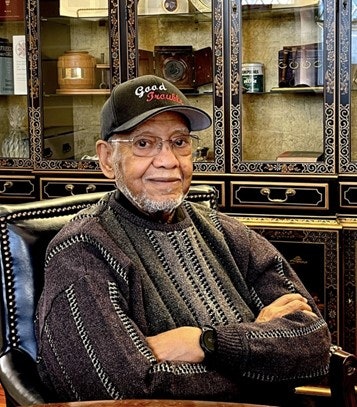Theotis Robinson Jr. was in the fifth grade when the ideals of justice and civil rights were emblazoned into the mind of the man who has spent much of his storied career fighting for diversity and equity in education.
Robinson, a foundational figure in University of Tennessee history, grew up in Knoxville, Tennessee, where he and his mother, Alma, would listen to the radio, discussing historic elections and admiring the courage of civil rights leaders. Robinson would soon join their ranks.
Born in 1942, he was an aspirational child who had his life planned out long before high school. He would go into the Air Force, followed by college, law school and then run for political office. He set the bar high for himself and he was culturally aware, which he credits to his parents who grew up in rural Mississippi and Georgia without the same opportunities toward their education.
“I had it all figured out,” says Robinson with a laugh. “I would join the Air Force because I had this love of airplanes, go to college, run for Senate, and then become President.”
Sitting at a conference table donning one of his many personalized ball caps, on this day one that reads “good trouble”, he shares fond memories of the Black educator who set the tone for his entire life.
“Her name was Mrs. Drake. I was in her homeroom class,” he says. “She played the piano and she had a song she would always lead that said, ‘We’ve been right there in line, we are Americans too.’ So, she instilled this in us along with the understanding of what the United States was supposed to be. She was teaching us the ideals of Black Pride long before the term was a thing. And that stuck with me,” he adds.
While enrolled at Knoxville’s Austin High School, Robinson joined classmates in a failed attempt to desegregate the all-white East High School, leading to the landmark Josephine Goss v. Knoxville Board of Education case. Later, he participated in sit-ins at Knoxville lunch counters during the summer of 1960 and downtown movie theater demonstrations, protesting segregation along with other cities across the South. Those experiences solidified his commitment to justice and resistance.














